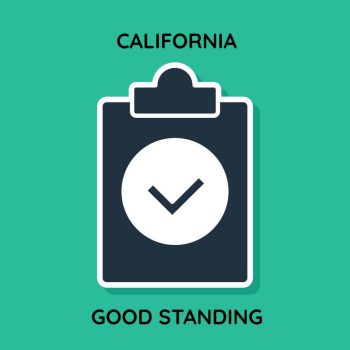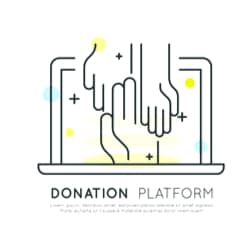In the past few months, we have received many inquiries regarding the impact of California’s new law governing charitable fundraising platforms and platform charities. The latest registration and filing requirements went into effect on June 12 and affect three categories of entities: (1) charitable fundraising platforms (“platforms”); (2) platform charitable organizations (“platform charities”); and (3) recipient charitable organizations (“recipient charities”). A charity can potentially fall into one or more of these categories.
In this article I focus on recipient charities, i.e., a charity that receives donations facilitated by a platform or platform charity. Although the law does not directly impose requirements on recipient charities, the new “good standing” requirement does have significant impact on recipient charities’ ability to receive funds through fundraising platforms.
Recipient Charities
The majority of 501(c)(3) public charities are likely to qualify as recipient charities. If an organization receives donations through platforms such as Facebook, Blackbaud, GoFundMe, Benevity, or Classy, it is considered to be a recipient charity.
The chief impact of the new law on recipient charities is the requirement that platforms and platform charities are only permitted to solicit, permit, or otherwise enable solicitations, or receive, control, or distribute funds from donations for recipient charities that are in good standing in California. This means that if your organization is not in good standing in California, a platform may stop listing you as a potential beneficiary of funds and cannot send funds to your organization.
Depending on how a platform has set up its good standing procedure, failure to be in good standing could prevent your organization from receiving online donations through the platform, not only from residents of California, but potentially from donors in any state.
How to Comply
To comply with the good standing requirement, fundraising platforms and platform charities receiving funds through the platform should ensure that with respect to each recipient charity: (1) the organization’s federal tax-exempt status has not been revoked by the Internal Revenue Service (“IRS”); (2) the organization’s tax-exempt status in California has not been revoked by the California Franchise Tax Board; and (3) the organization is not prohibited from soliciting or operating in the State by the California Attorney General.
Charitable fundraising platforms and platform charities are prohibited from facilitating donations for recipient charities who are on any of the following three lists pursuant to the good standing requirement:
- California Attorney General’s list of charities that may not operate or solicit in the State
- California Franchise Tax Board’s Revoked Exempt Organizations List
- The IRS’s Tax-Exempt Organization Search Tool
What Can Charities Do Now?
Monitor your organization’s good standing status and ensure that you are submitting the required filings to remain in good standing. We suggest that you check all three databases, even if you believe there is no reason to be out of good standing on any of these lists.
Check your status in each of the three databases:
- CA Attorney General Registry Verification
- CA Franchise Tax Board Entity Status Letter | FTB.ca.gov
- IRS Tax Exempt Organization Search | Internal Revenue Service (irs.gov)
For more information, see our recent articles on California’s new law governing charitable fundraising platforms:
California Issues Final Regulations Governing Charitable Fundraising Platforms
California Enacts New Law to Regulate Charitable Fundraising Platforms
- Tracy L. Boakhttps://perlmanandperlman.com/author/tracyboak/
- Tracy L. Boakhttps://perlmanandperlman.com/author/tracyboak/
- Tracy L. Boakhttps://perlmanandperlman.com/author/tracyboak/
- Tracy L. Boakhttps://perlmanandperlman.com/author/tracyboak/










